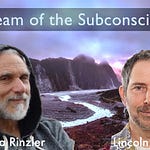Let me introduce you to my next book: the Operating Manual for Enlightenment. The book’s goal is to set you straight about raising your sights and getting your feet on the ground. It encourages you to ask more of yourself, and be more successful in doing so.
Listen to the Prologue in audio form using the audio player embedded above.
As of this writing, my Kickstarter campaign has met its threshold. You can help by adding your pledge to the campaign. Get the book in various forms. Pledge levels, starting at US$5, will get you an extended, ebook edition.
Click the button below to read the prologue. I’ve omitted the references.
Operating Manual for Enlightenment
Prologue
Some Thoughts on Innovation
The straightforward ideas in the Operating Manual are rarely stated despite being obvious. Many of the pieces to the puzzle of understanding ourselves lie in plain sight. Why don’t we recognize them?
Writing in The Atlantic, Derek Thompson (2016 Dec 13) says:
“In 2014, a team of researchers from Harvard University and Northeastern University wanted to know exactly what sorts of proposals were most likely to win funding from prestigious institutions… They prepared about 150 research proposals and gave each one a novelty score. Then they recruited 142 world-class scientists to evaluate the projects.
“The most-novel proposals got the worst ratings. Exceedingly familiar proposals fared a bit better, but they still received low scores. ‘Everyone dislikes novelty… and experts tend to be overcritical of proposals in their own domain.’ The highest evaluation scores went to submissions that were deemed slightly new.”
The phenomenon of preferring the familiar is not limited to experts, though it may have a more stultifying effect because experts police information. This censoring forces alternative narratives which experts deprecate and opponents decry. “False news” is as much a result of close-mindedness as it is of opportunism.
The Operating Manual puts together diverse ideas from different perspectives. These ideas make a whole richer than any of the parts alone, and more vital than the parts taken separately. You won’t get this integration from the experts.
Experts are narrowly trained, lack wider experience, and often suggest ignorant ideas. In 1990, esteemed psychiatrist Bennett Braun claimed dozens of his patients had repressed memories of being tortured by satanic cults (Risen, 2024). There followed over 12,000 accusations of satanic ritual abuse but, within four years, the FBI and National Center on Child Abuse and Neglect found them all to be fabricated.
Doctor Brian Weiss, another psychiatrist, specializes in past life regression. In 1988, he started writing on reincarnation, past life regression, future life progression, and survival of the soul after death. Weiss has a loyal following, has made a small fortune, and has helped many people, despite a complete lack of credible evidence behind any of his theories.
I consider myself an expert on past life regression. I practice its techniques with most of my clients to positive effect. Someday we may come to understand it, once we get beyond the poorly conceived theories of Brian Weiss and his followers.
People are Narrow
We’re trained to be correct, and we believe that being correct means we’re equally correct throughout our domain. This is a consequence of schooling that trains us to follow rules and parrot what we’re told. We define our expertise as everything we engage with, and avoid learning where we’re unauthorized.
I have had many clients who think, or would like to think, that because they are right they are smart, and because they are smart they will be right about anything. The more dysfunctional these clients are, the more widely qualified they feel themselves to be.
I call this The Emperor’s New Clothes syndrome. The defining characteristics are an inability to engage in constructive dispute, recognize weakness, or accept criticism. These are the people who engage you to listen to their successes but don’t welcome your comments.
One client retained me to verify that she had a genius IQ. She was violently paranoid and delusional. Another asked why he should pay to speak to me when I offered nothing more than any of his friends. He was schizophrenic and lacked healthy friendships. A third would tell me about her skillful successes and her struggles against the unfairness of others while, at the same time, repeatedly inflicting emotional damage and not recognizing it.
What Innovation Means For You
In the realm of personal growth, innovation means seeing your failures and inventing new patterns. The essential feature of a successful innovator is more a matter of exploring failure than inventing success. In complex problems, there is more failure to be had than successful innovations to be found. You must become an expert at failing. The successful ideas come from this.
I used to think I was too critical. I seem to be too harsh for other people, but it’s not because I’m too critical, it’s because most people are desperately insecure. Their innovation is limited because they cannot see and own their limitations. They have been trained to depend on the self-image that other people have affirmed. They are too frightened to redefine themselves.
You might say it comes down to time management. In order to grow in insight, expand your expertise, and become effective in new domains you must reserve time and space in which to grow. If you’re always overwhelmed, or if you are so short on energy that you cannot put real resources into growing yourself, then you will not learn and you will not change.
Even if you only give yourself a little time and space, you must give yourself some resources to think and feel differently. More than different thoughts and ideas, you must get lost in the new areas that call to you. You must be courageous.
This requires resources more than skill. The Operating Manual is important because it opens new paths and insists that you must follow them all. You must do this now, and you must follow them simultaneously. These paths are all the states of mind that embody your aptitudes, needs, and passions. Drop what’s familiar and go naked into metamorphosis.
References
Derek Thompson (2016 Dec 13). The Four-Letter Code to Selling Just About Anything, The Atlantic, https://getpocket.com/explore/item/the-four-letter-code-to-selling-just-about-anything
Risen, C. (2024 Apr 12). Bennett Braun, Psychiatrist Who Fueled ‘Satanic Panic,’ Dies at 83. New York Times. https://www.nytimes.com/2024/04/12/us/bennett-braun-dead.html













